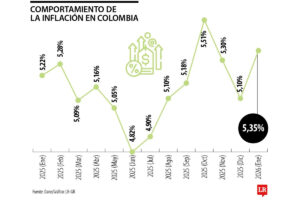Oil prices gained about 2% on Friday as some speculators kept taking profits on short positions, but remained on track for a third week of losses on signs of slowing demand.
Brent futures rose $1.57, or 2.0%, to $81.58 a barrel by 11:48 a.m. EST (1648 GMT), while U.S. West Texas Intermediate (WTI) crude rose $1.54, or 2.0%, to $77.28.
Both benchmarks were down about 4% for the week, which would be a third straight weekly decline for the first time since May.
“Concerns about demand have replaced the fear of production outages related to the Middle East conflict,” analysts at Commerzbank said.
Weak Chinese economic data this week increased worries of faltering demand. Additionally, refiners in China, the largest buyer of crude from Saudi Arabia, the world’s largest exporter, asked for less supply for December.
Euro zone inflation could tick up in coming months, but European Central Bank (ECB) interest rates held at their current level at least for several quarters could still get price growth back to 2%, ECB President Christine Lagarde said.
Higher rates can reduce oil demand by slowing economic growth.
In the U.S., Federal Reserve Chair Jerome Powell said Fed officials “are not confident” interest rates are high enough yet to tame inflation. Still, James Knightley, chief international economist at ING said he was “increasingly confident we’ll see a 2% headline inflation rate” in the U.S. by next summer.
“Interest rate hikes appear to be working, and we reckon the next move by the Fed will be a rate cut should the economy need a helping hand in 2024,” Knightley said.
In Britain, the stagnating economy failed to grow in the July-to-September period but did avoid a recession, according to the UK’s Office for National Statistics.
In the Middle East, Israeli air strikes hit Gaza’s biggest hospital, the Al Shifa, killing one person and wounding others sheltering there.
More than 100 United Nations employees have been killed since the Israel-Hamas war began in Gaza, the U.N. Palestinian refugee agency said.
UPCOMING OPEC MEETING
OPEC+, the Organization of the Petroleum Exporting Countries and allies including Russia, will meet on Nov. 26. Chances Saudi Arabia will extend its output cut into the first quarter of 2024 “is certainly increasing given renewed market concerns about Chinese demand and the broader macro outlook,” RBC Capital Markets analyst Helima Croft said.
Analysts at Capital Economics said OPEC+ might cut supply further if prices continue to fall.
“We are sticking with our forecast of Brent ending both this year and next year at around $85 per barrel,” the research firm said in the note.







